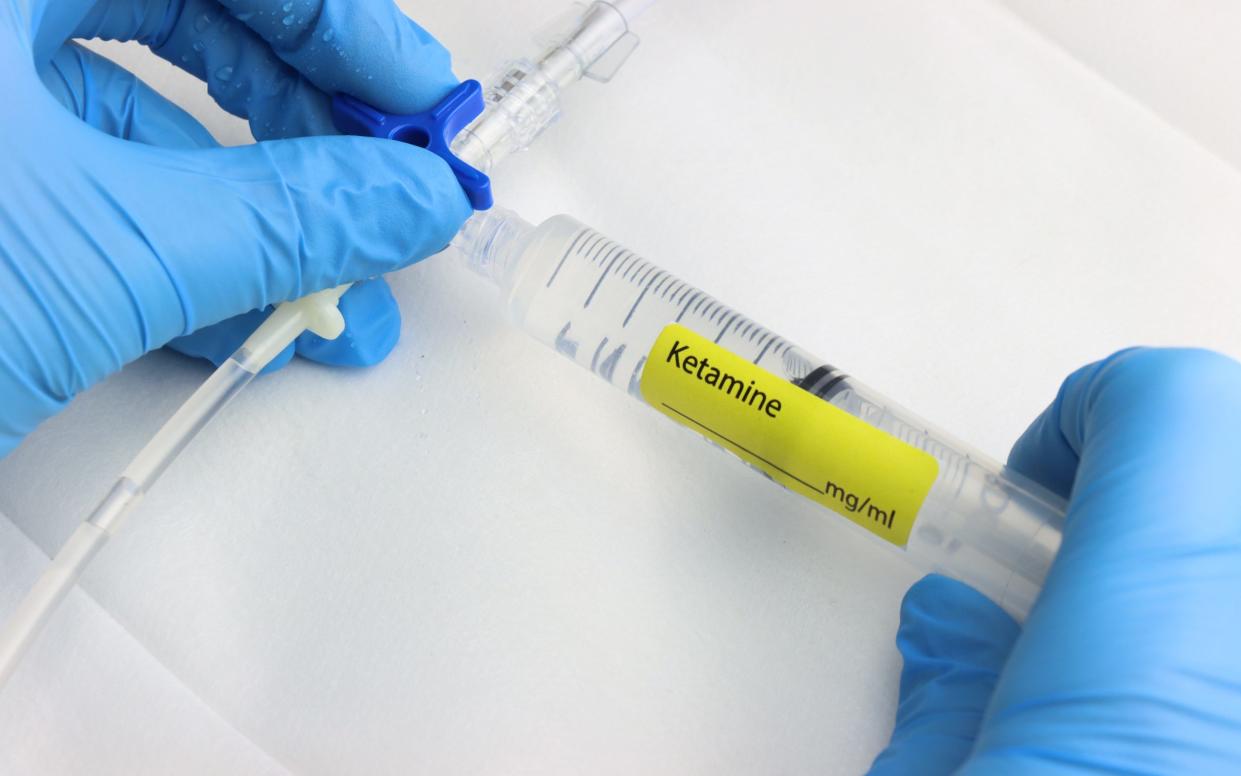Why ketamine isn’t a silver bullet for depression

It’s a party drug that’s best known for triggering out-of-body experiences. But ketamine is also one of the most promising treatments for severe depression.
Fresh attention has been drawn to the drug this week after the billionaire Tesla owner Elon Musk revealed that he takes it every fortnight when he falls into a “negative chemical mind state”, claiming that the drug is “helpful for getting you out of a depressive mindset”.
While it has been used in the NHS for more than a decade to treat patients with severe depression, it is rarely prescribed in practice and understanding of how it works and its long-term effects remain limited.

What is ketamine and how is it offered on the NHS for depression?
When sold illegally, the Class B drug comes in the form of a white or light brown powder that is most commonly snorted and can leave users feeling detached, happy or anxious.
However, it is in liquid or tablet form when used medically.
While ketamine is only licensed as an anaesthetic in England, a handful of specialised NHS sites offer the drug off-label for patients with severe depression who have not responded to conventional treatment, such as talking therapies or antidepressants.
However, few meet eligibility criteria for ketamine. Patients need to have tried at least two types of antidepressant drugs and one psychological treatment which haven’t worked.
They must then receive a referral from their GP or psychiatrist and complete a rigorous assessment process set out by specialist ketamine clinics, which can involve daily mood monitoring, questionnaires and an assessment.
Patients who qualify are initially offered three to six ketamine infusions over as many weeks. Each infusion eases depression symptoms for 10 days, on average. Around half respond well and want to continue treatment, which is usually needed for years.
Dr Rupert McShane, a consultant psychiatrist who leads the ketamine service in Oxfordshire, says some patients will then receive an oral form of the drug, taken weekly, alongside regular infusions to prolong the treatment’s mood-boosting effects.
However, most patients have to fund this treatment themselves. “The only NHS provision through our clinic is for patients who are referred to the clinic by an Oxford Health NHS Trust consultant psychiatrist. Patients from elsewhere have to pay,” says Dr McShane.
Costs can spiral quickly. An initial assessment appointment, ketamine IV infusion and bottle of oral ketamine are priced at £225 each.
Patients can also opt to have a ketamine nasal spray, branded as Spravato, which has been licensed for treatment-resistant depression but has not been greenlit for use on the NHS. It costs up to £714 per administration.
Oxford Health NHS Foundation Trust is the primary site offering ketamine for depression, alongside the South London and Maudsley NHS Foundation Trust, both of which accept NHS referrals.
Why is it available on the NHS and what are the risks?
Two decades worth of research suggests that ketamine can have a rapid effect on depression symptoms after just one dose. Leading psychiatrists have said the drug can work for patients where nothing else has.
One study by researchers at the University of Montpellier, France, which saw more than 100 patients hospitalised with severe suicidal thoughts given IV infusions of the drug, found that three in five patients reached full remission.
Another, from a team at Massachusetts General Brigham, recruited around 400 patients with treatment-resistant depression. Among volunteers given ketamine, 55 per cent saw an improvement in their symptoms over the next six months, compared to 41 per cent among those given brain stimulation – a treatment offered on the NHS for severe depression.
It is unclear exactly how ketamine works but researchers believe it helps neurons in the brain communicate with each other, which is thought to boost mood and cognition.
“I think there would be a benefit for offering [ketamine therapy] more widely and repurposing it as it is very effective in depression,” says Celia Morgan, a professor of psychopharmacology at the University of Exeter.
Dr McShane, who is also an associate professor of psychiatry at the University of Oxford, agrees that ketamine should be available more widely on the NHS but notes that it should be restricted to those with severe or highly resistant depression.
However, it is not a silver bullet for depression. When ketamine is used frequently in high doses, it can be addictive and cause severe bladder damage.
Additionally, the long-term effects of ketamine for depression are unknown. “It is really important that we start tracking the benefits and side effects people get when they take long-term ketamine. However, setting up tracking systems is expensive,” says Dr McShane.
How likely are you to get it on the NHS and how else is ketamine used?
Very few patients are offered ketamine through the health service.
Dr McShane notes that just 25 patients are receiving ketamine treatment on the NHS at his Oxford site, while 109 are paying for the service. His clinic was forced to stop accepting new self-funding patients last month, as his team is working at capacity.
Outside of its use for depression, ketamine is primarily used as an anaesthetic.
However, it can also be prescribed off-label to treat pain, as the drug has been found to block the action of a receptor in the spinal cord, which reduces pain messages sent to the brain.
In these cases, it must be prescribed by a specialist in pain control or palliative care and is usually given as a peppermint-flavoured liquid that is taken three to four times a day by mouth, or as an injection for patients who have difficulty swallowing.
Recommended
'I was suicidal, but with ketamine those thoughts went away'

